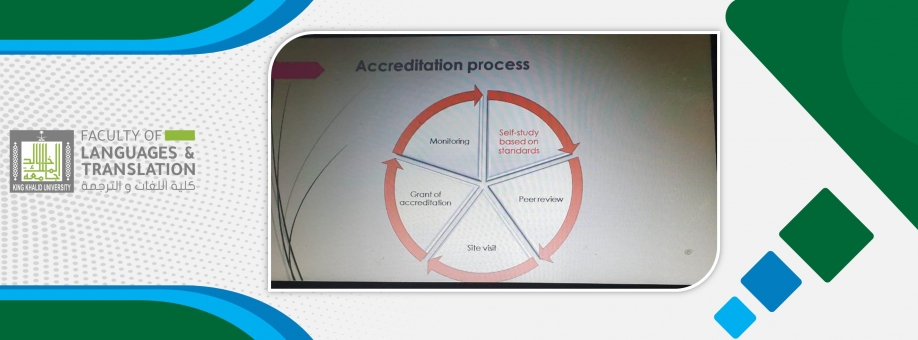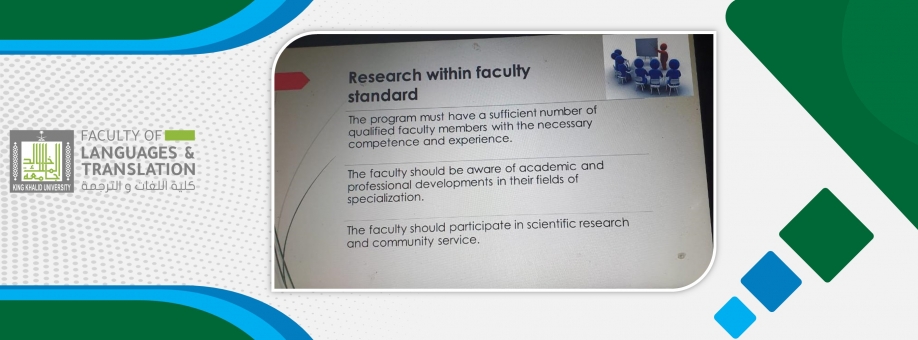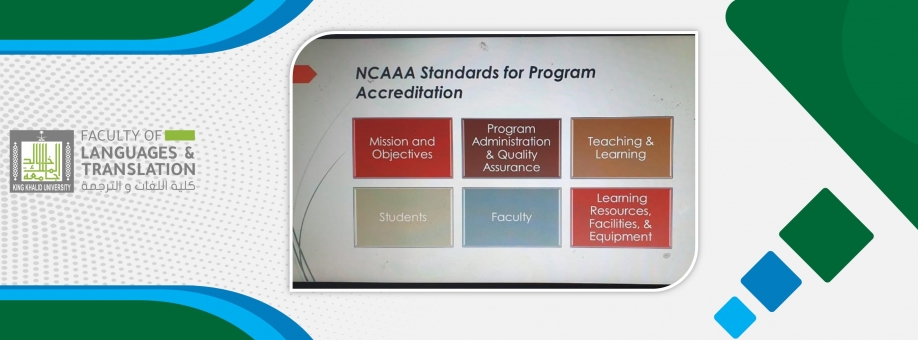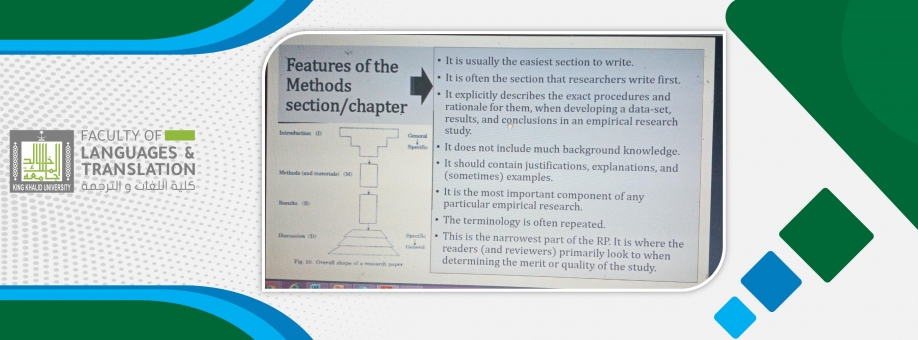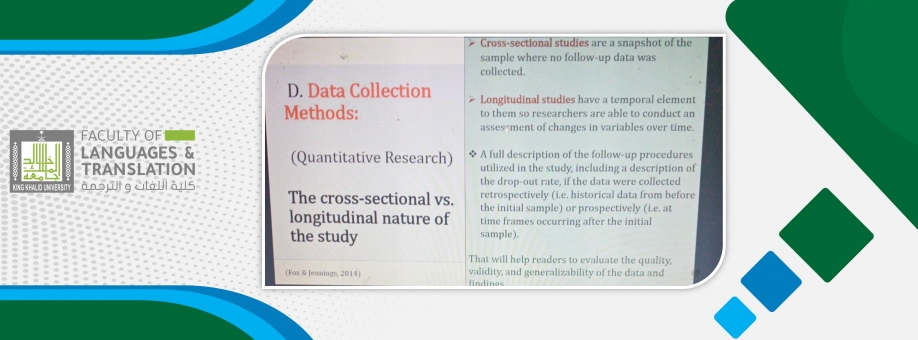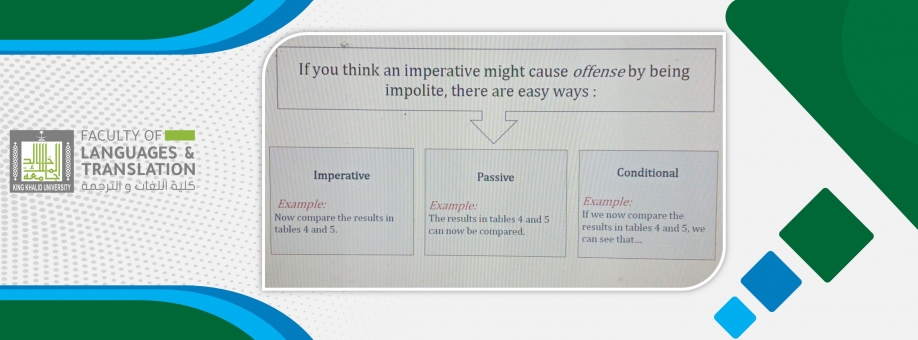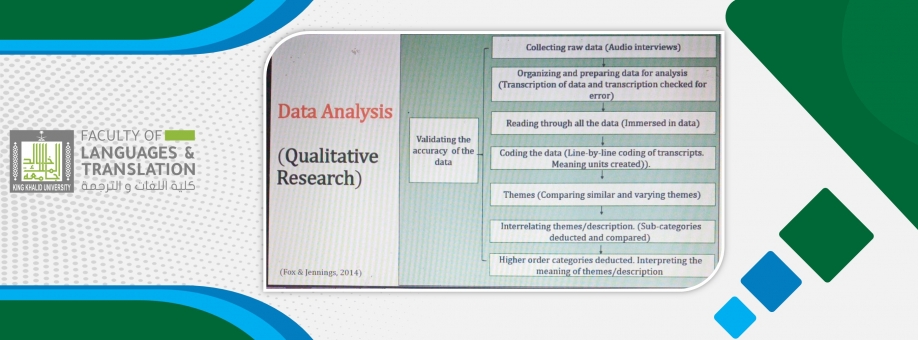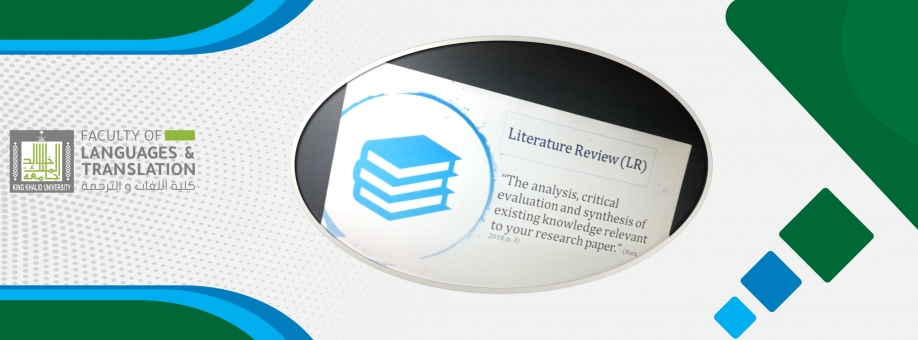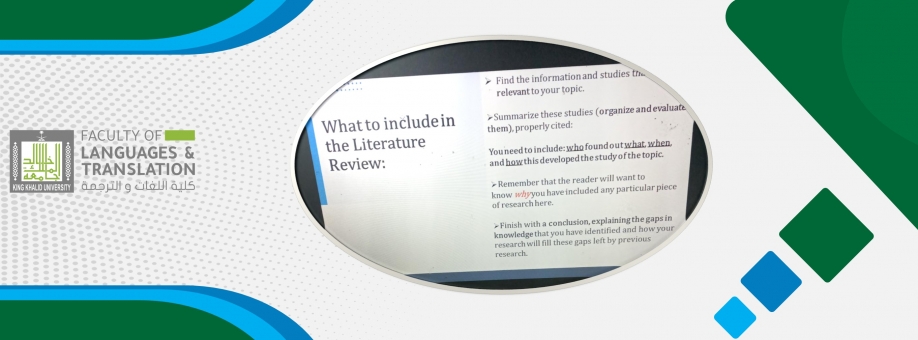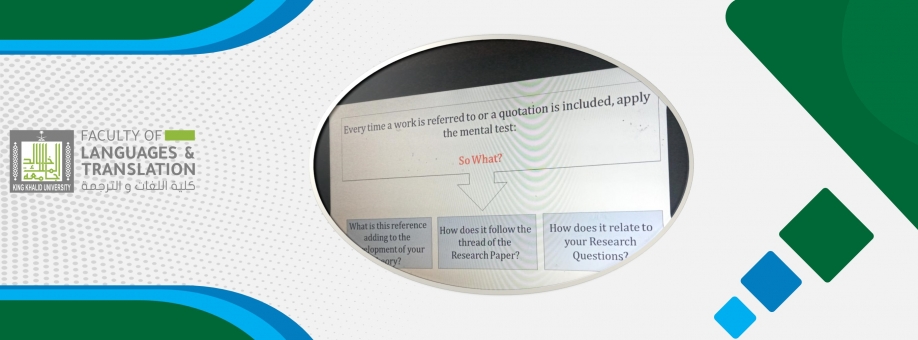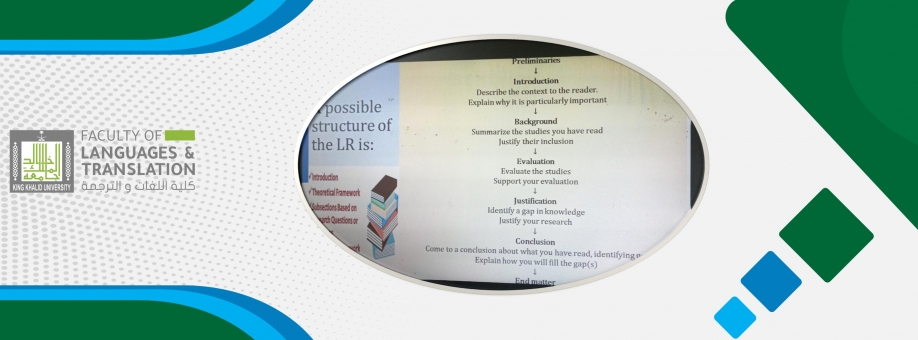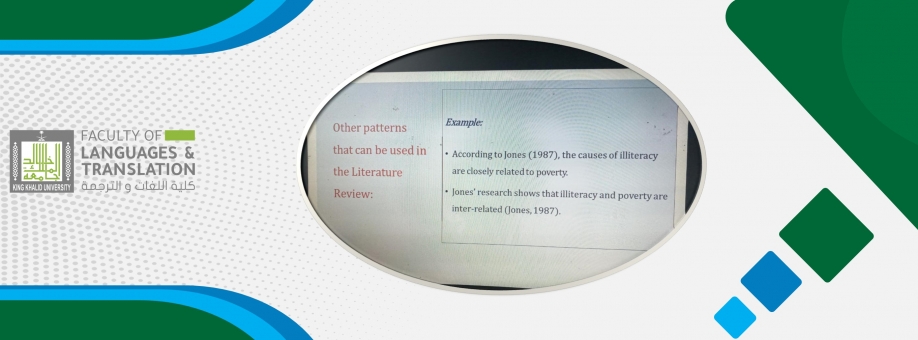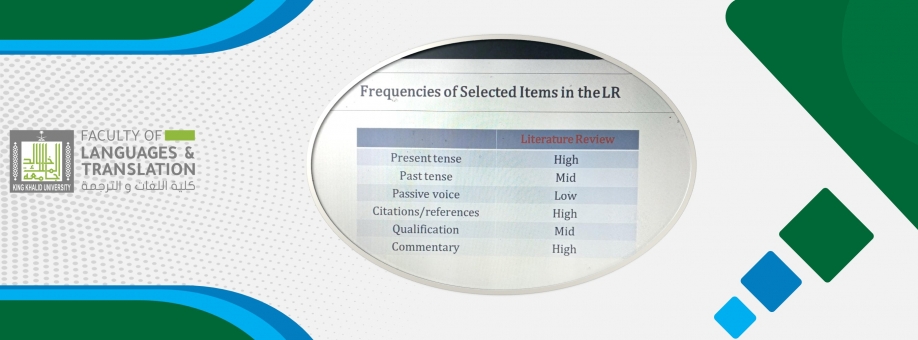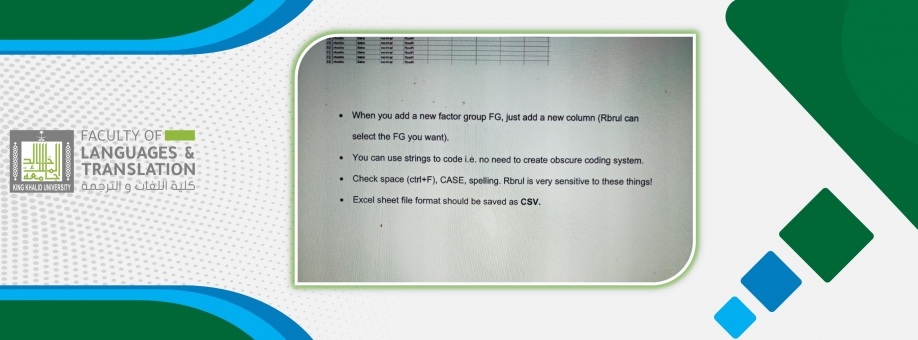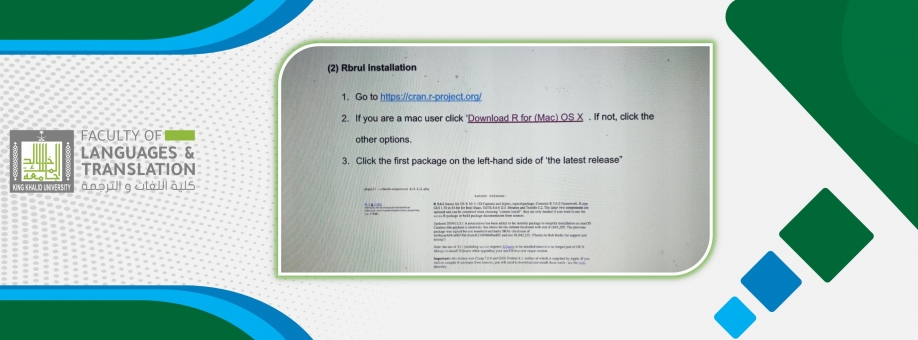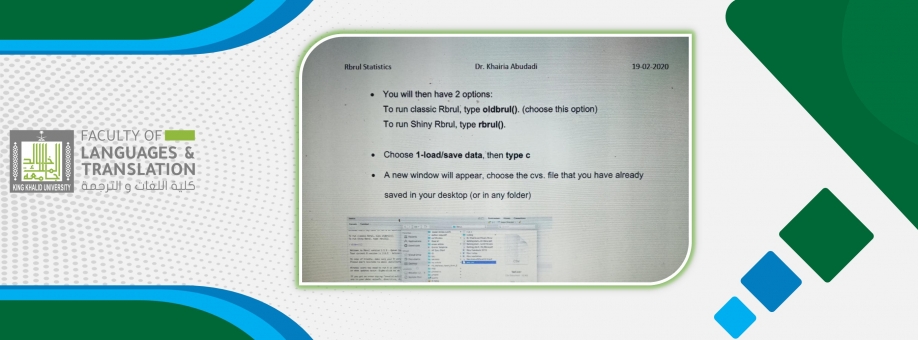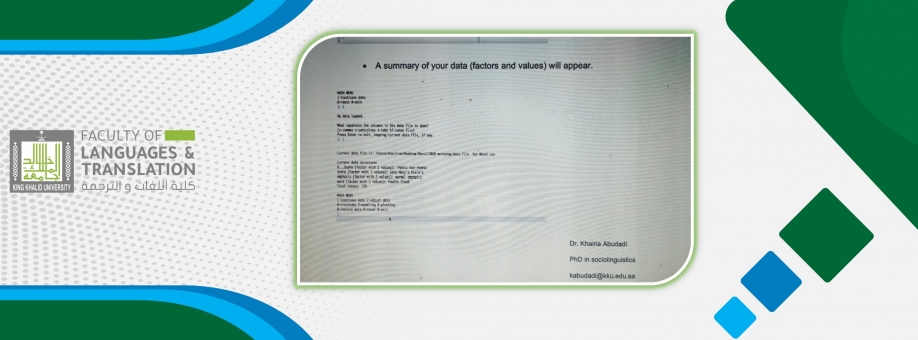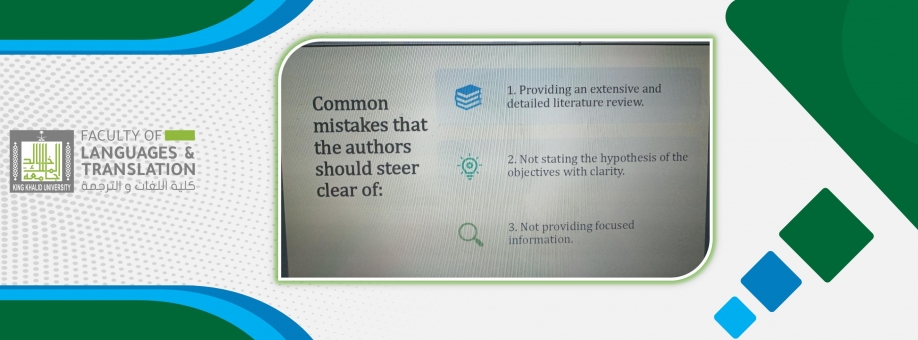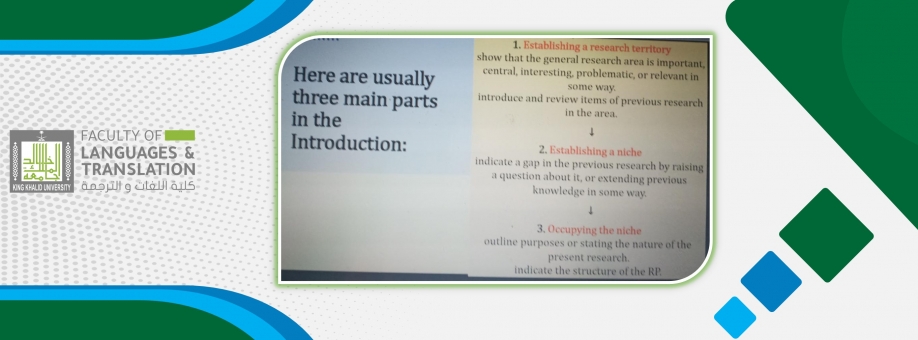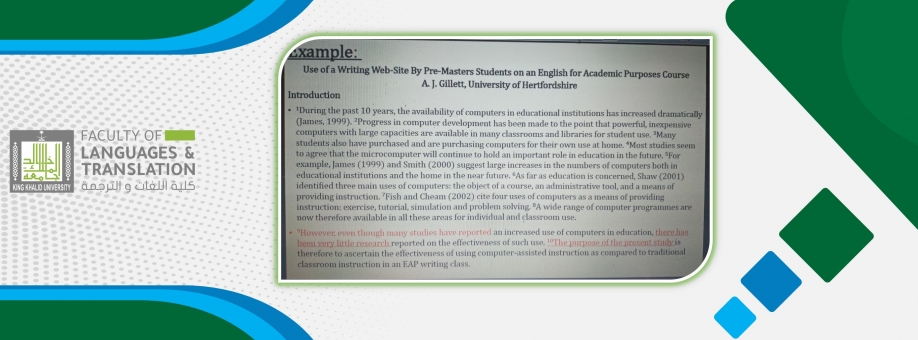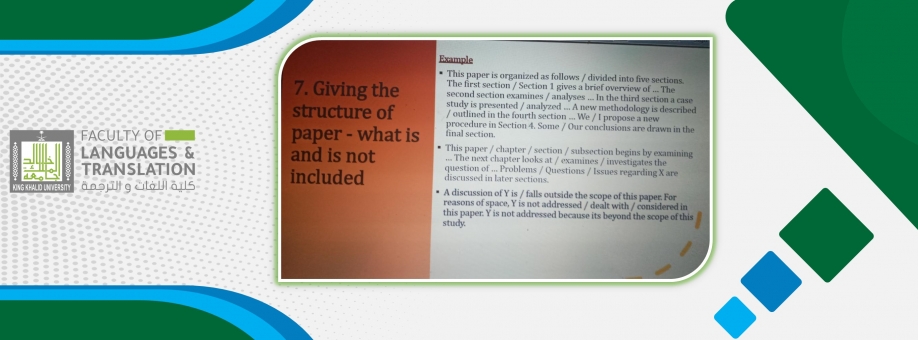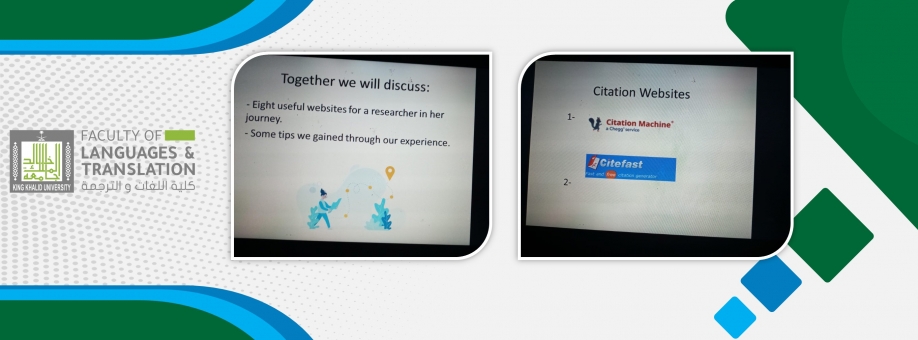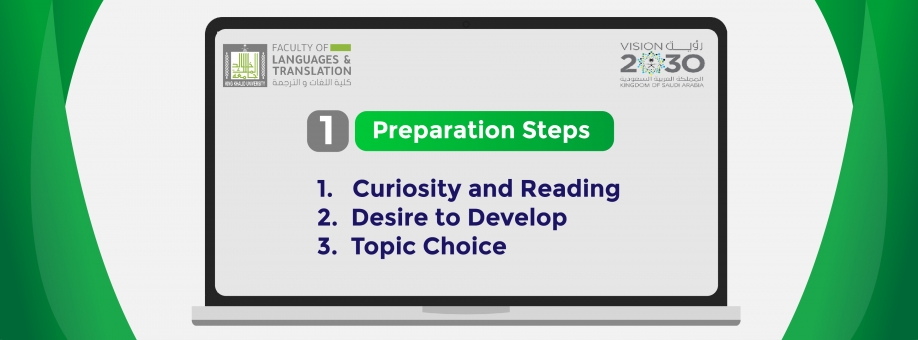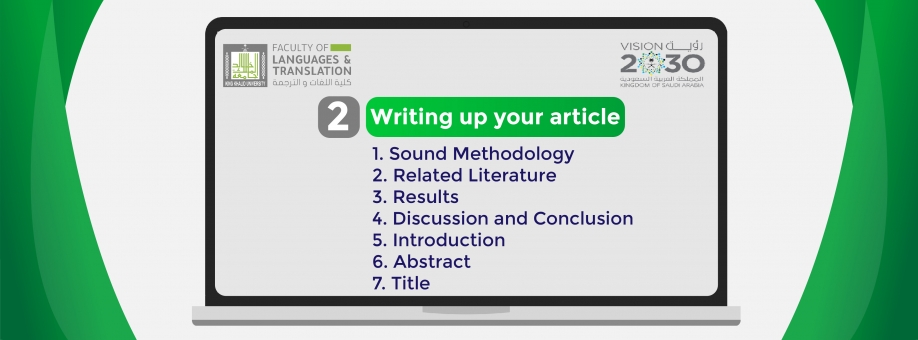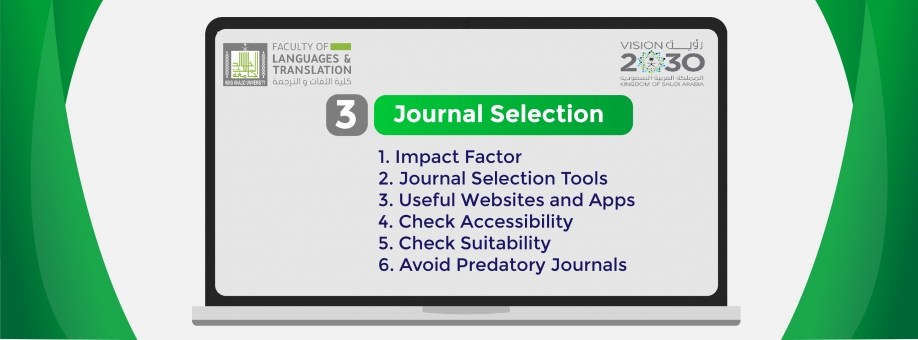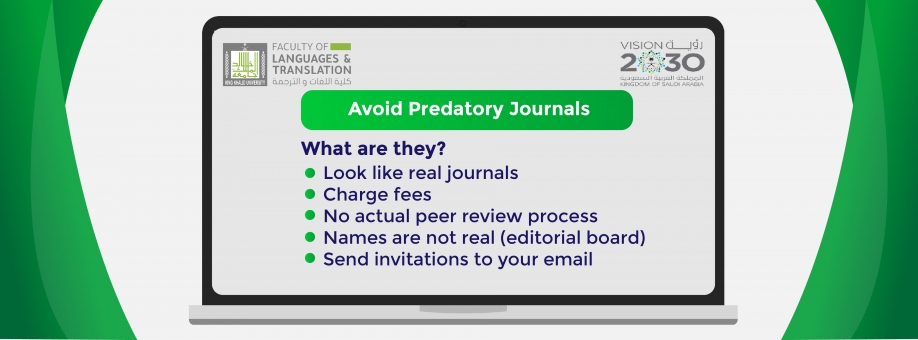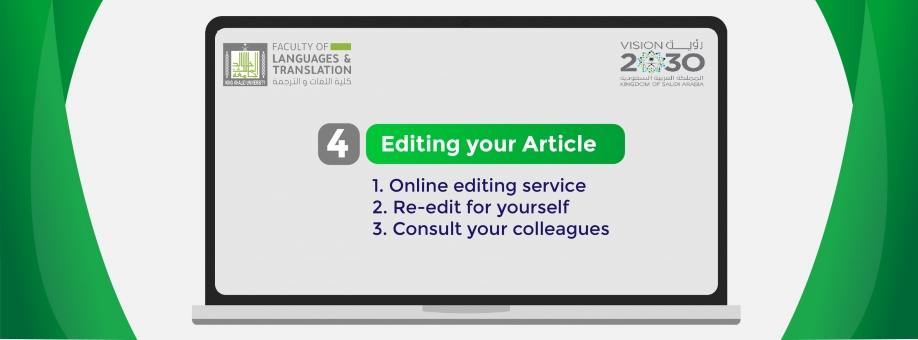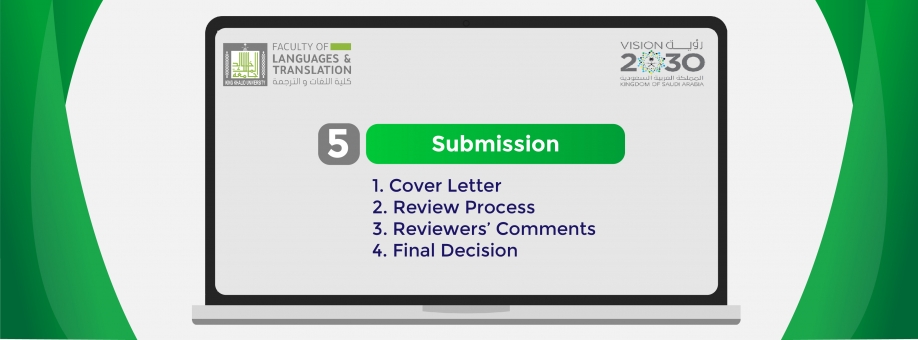Academic Writing Webinar: Session 1
On February 10, 2021, the Women's Scientific Research Committee of the Bachelor of Arts in English program organized the first session of webinars on academic writing by Dr. Nada Alqarni.
"Understanding your writing strategies is important in becoming a confident writer", said Dr. Alqarni. Academic writing is a product of many considerations (i.e., audience, purpose, consideration, style, flow, and presentation), as she further illustrated. Dr. Alqarni explained the significance of employing hedging, whose job is to make things fuzzier, implying that the writer is less than fully committed to the certainty of the referential information given. She further illustrated that hedging can be expressed through the use of a variety of structures. Additionally, she explained when to use hedges, emphasizing that their appropriate use is central to developing an academic, communicative competence as it assists the writers in establishing "a relationship with the reader and with the authorities in the field".
Following this introductory section, Dr. Alqarni moved to explain the parts of the academic research paper. The introduction, the purpose of the introduction, and common mistakes that the authors should steer clear of in writing the introduction, as well as the main parts in the introduction, were the main ideas covered in the second section. She emphasized that the author should establish a research territory, identify a niche indicating the gap in the previous research by raising a question about it, and occupy the niche stating the purpose of the present research. Hence, in the introduction, authors should establish why the topic is important, outline the past-present history of the study of the topic, indicate the gap in knowledge and possible limitations, state the aim of the paper and its contribution, explain the key terminology in the field of the study and how the terminology and acronyms are used in the paper and indicate the structure of the paper.
The webinar, which was mainly delivered to MA and Ph.D. students, and attended by the vice dean Dr. Salma Alqahtani and staff members at the faculty of languages and translation, included practice on the three main parts of an introduction (i.e., the general research area, the gap in the literature and the purpose of the research paper).
The series of academic writing webinars, which are organized by the Scientific Research Committee, consists of seven sessions on Mondays & Wednesdays, February 10, 2021, to March 3, 2021, at 4:30 pm.
Date: 2/14/2021
Source: Dr. Amal Metwally – Head of Scientific Research Committee
عربية

